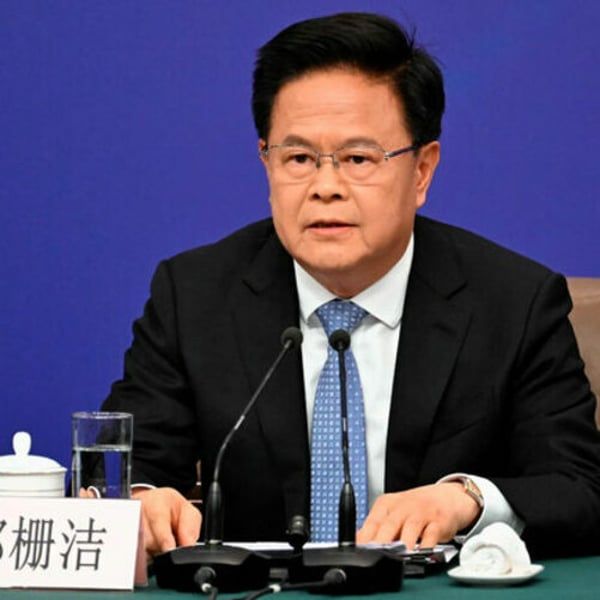Translated by
Nicola Mira
Published
March 7, 2024
On Wednesday, top policymakers in charge of China's economy expressed confidence that the Asian giant will recover this year, despite headwinds that continue to hamper its growth.
Thousands of Chinese parliamentarians gathered in Beijing this week for the country's annual parliamentary session. This is traditionally an opportunity for the government to outline its social and economic policy for the year.
“The favorable conditions for China's economic growth outweigh the unfavorable factors,” Zheng Shanjie, head of national economic planning, said Wednesday at a press conference held to coincide with the parliamentary session.
“The trend of economic recovery will be consolidated and strengthened,” added Zheng, chairman of the National Development and Reform Commission (NDRC), the agency that manages China's macroeconomic policy.
Zheng was joined by some of the country's top economic officials: Minister of Commerce Wang Wentao, Minister of Finance Lan Fo'an, Governor of the Central Bank of China Pan Gongsheng, and the head of the market regulatory authority, Wu Qing.
This year's parliamentary session is being closely watched by the press, investors and ordinary Chinese, many of whom believe their purchasing power has been undermined in recent years.
Everyone is waiting for reassuring signals from the leaders of the world's second-largest economy, which is grappling with a housing crisis, weak exports, low consumption and high youth unemployment.
“Handling”
“We are also aware that we will still face many challenges and difficulties as we work to achieve the expected results” in 2024, Zheng said. On Wednesday, Commerce Minister Wang expressed concern about “downward pressures” on global growth.
Exports, typically a major driver of growth for the Chinese economy, fell last year for the first time since 2016.
A consequence of the drop in global demand for Chinese products, while developed economies fight inflation and, to a lesser extent, friction between Beijing and Washington. In this context, China is struggling to boost its growth. This drop is affecting Chinese stock markets, which have generally been bearish for several months.
“Decisive measures must be taken to correct market failures,” warned Wu, head of China's market regulator, lashing out at “sudden and irrational fluctuations.”
“Cases of market manipulation (…) must be decisively quashed,” he insisted, promising to “address any irregularities.”
Press conference canceled
These comments seemed to imply an upcoming tightening of regulations and are unlikely to reassure foreign investors, who have already been affected by geopolitical tensions.
On Tuesday, Premier Li Qiang set a growth target of “about 5%” for China's GDP this year.
A growth rate that would delight many developed nations, but for China it remains quite far from the rapid growth that has propelled the country to the top of the world economy in recent decades.
A GDP growth target of 5% is also the same as last year and, while still one of the lowest since the 1990s, will remain “difficult to achieve,” Li acknowledged.
China announced this week that its prime minister will not hold a press conference at the end of this parliamentary session, breaking with a tradition well established for three decades.
However, Foreign Minister Wang Yi will answer questions from journalists, as expected, in a meeting scheduled for Thursday at 02:00 GMT.
Copyright © 2024 FashionNetwork.com All rights reserved.












